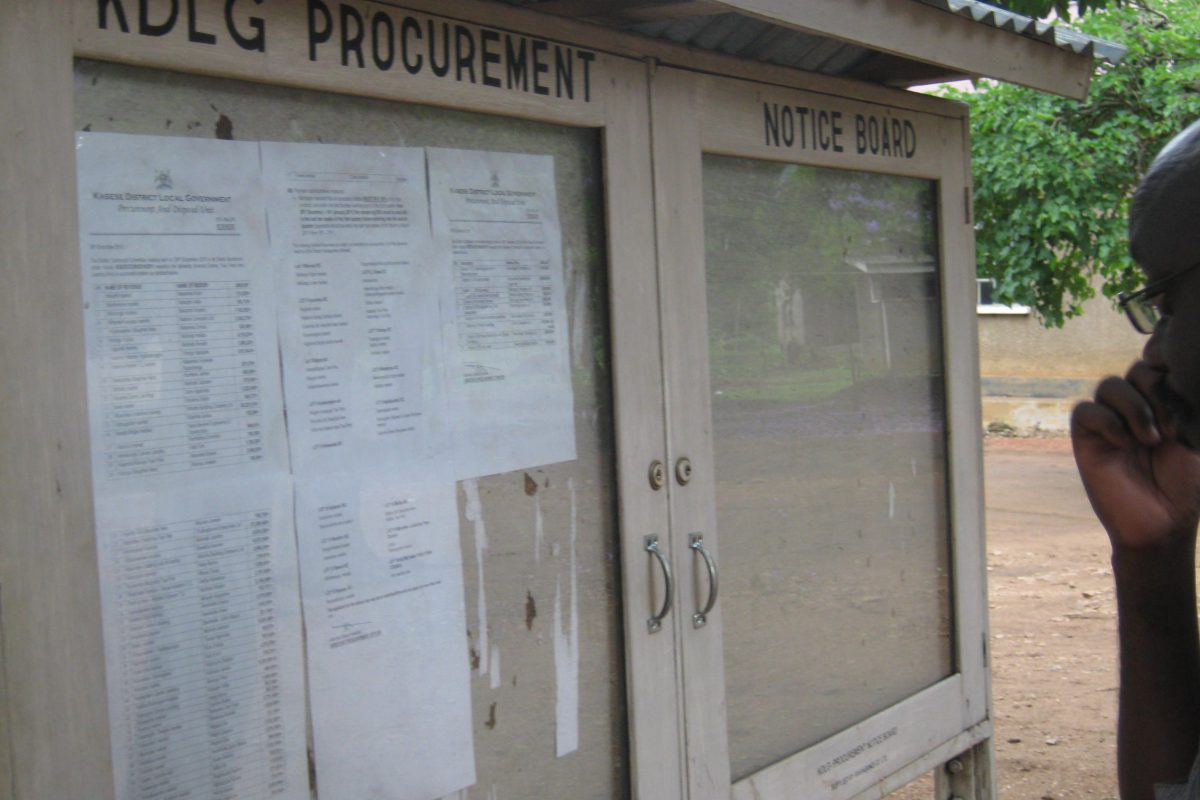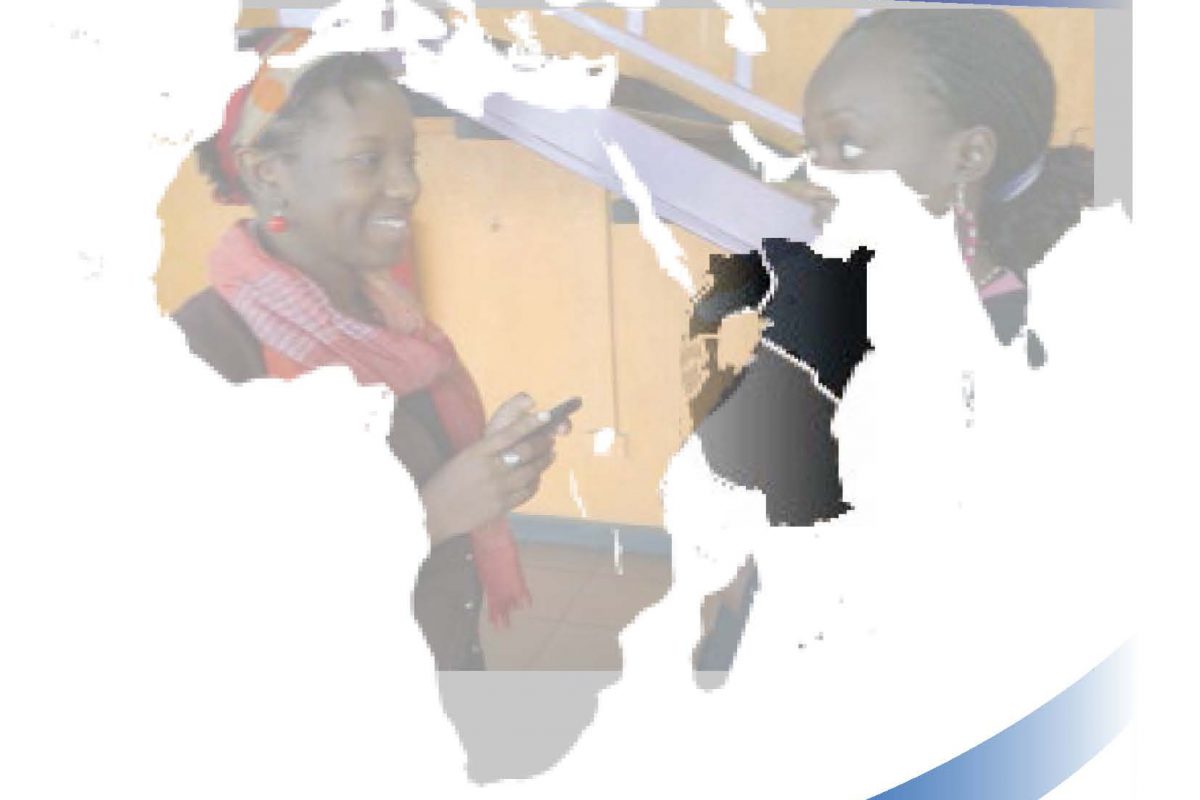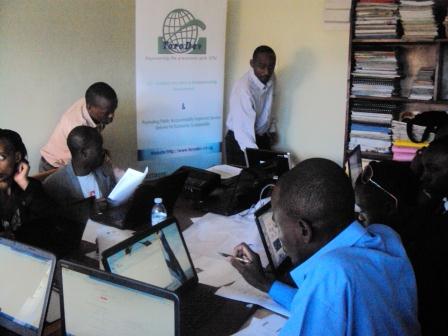The rapid growth in internet access and use in Africa, particularly through the mobile internet, makes it imperative for civil society and for internet companies committed to the free flow of information and freedom of expression to better understand how intermediary liability works (or does not work).
This paper looks at the state of intermediary liability in Uganda. In particular, it explores regulations relevant to the responsibilities of intermediaries. It cites incidences of content takedowns, attempts to block access to internet content, mobile content filtering and media persecutions, and the applicable sections of the law.
Download the full paper here
This Independent research was commissioned by the Association for Progressive Communications and supported by Google Africa.
See Policing the Internet: Intermediary Liability in Africa for further details.
Open Development: The Engine for Uganda’s Advancement
 Press statement to commemorate the International Right to Know Day
Press statement to commemorate the International Right to Know Day
Kampala 28th September – Today is the International right to know Day. The International Right To Know Day began on September 28, 2002, in Sofia, Bulgaria at an international meeting of access to information advocates who proposed that a day be dedicated to the promotion of freedom of information worldwide. The goal of RTK Day is to raise global awareness of individuals’ right to access information and to promote access to information as a fundamental human right. It seeks to highlight the benefits of open, transparent and accountable governments.
On 11-12 September, representatives of diverse civil society organizations (CSOs), government, development partners, private sector, academia and citizens, met at Hotel Africana in Kampala for the Open Development Stakeholders Workshop with the objective of Understanding the Open Development landscape and issues in Uganda, and proposing a programme focus, strategy and design.
Open development is where organisations are using Information technologies, among other information sharing channels, to provide and share information. Open Data enhances transparency and accountability about resources that are available to be invested in development, how those resources are invested and what results they achieve. In the end, all the stakeholders involved in this information sharing chain benefit from this mutually reinforcing ecosystem.
Recognising the positive steps that the Uganda government has taken in Promoting transparency and good governance as enshrined in the Constitution and other regulatory and policy frameworks, the delegates nevertheless underscored the importance of putting in practice the several statutory pronouncements that government has into the access to information act, the constitution, and other government documents. The workshop further highlighted the importance of civil society, development partners and private sector opening up as well; as these efforts work better when all stakeholders with sharable information pull their efforts together.
The conference ended with the establishment of the Uganda open development collaboration and the partners agreed to establishment of a web portal where all sorts of development information; on Agriculture, Health, education, energy, will be displayed so that anyone who needs the data can access it. It will espouse robust data collection, access and use techniques as well as a feedback mechanism that allow interface with the producers and users of information.
The conference also ended with a call to action to all stakeholders to fast track openness as a way of promoting transparency and accountability, thereby improving development outcomes:
The call was to:
(a) The Uganda government to:
- review and repeal policies, regulations, legislation and practices that are restrictive or inconsistent with the above provisions and with regional and international open data standards and that interfere with access to information and development;
- prioritise the development of capacity and awareness, among stakeholders to facilitate open development, access to and dissemination of data and information;
- sign on to, and apply the principles of, the Open Government Partnership;
- ensure transparency of, and access to, public information;
- ensure that the process of data access involves a wide cross-section of stakeholders, including civil society organisations, private sector, and development partners;
- develop and support partnerships with civil society organisations on specific open development initiative.
(b) Uganda’s development partners to:
- Openly share information on funding availability and disbursements in line with the provisions of the International Aid Transparency Initiative (IATI);
- Promote collaboration and networking with civil society organisations and governments in promoting open development;
- Recommit to adoption of the Paris principles on aid effectiveness and the Accra protocol;
- Support efforts that are aimed at promoting transparency of all resources, including budgets, aid, resources about extractive industries, and about private flows.
(c) Civil society organisations in Uganda to:
- Adopt transparency principles as stipulated in the Civil Society Quality Assurance Mechanism (QuAM);
- Strengthen support and collaboration to develop a network of ogranisations that actively advocate for and implement open development;
- Create and use clear feedback mechanisms of engagement in identifying and addressing citizens needs;
- Facilitate community and or citizen documentation of evidence on what works (or not);
- Facilitate partnerships with development partners and government;
- Encourage the development of technologies and applications that innovatively engage citizens and promote community participation in governance and account ability;
- Participate actively in positively influencing uptake of open data and open development policy and governance issues at national, regional and international level.
(d) The private sector, think-tanks and academia in Uganda to:
- Encourage research and innovation creating applications that can promote Open development in Uganda through innovative applications; Create partnerships and collaborations in developing open data platforms;
- Invest in the process of developing open development and open data processes;
- Contribute to analysis of primary data for ease of access to citizens; and
- Explore opportunities for making communication products accessible and at reason able cost to users, in particular communities.
In the spirit of the international right to know day, and in support of the above
proclamations, therefore, partners:
- Agreed to collaborate in an Open Development Initiative that brings together stake holders in data access, analysis, and use, as well as developers of applications;
- Reiterated the need for a multi stakeholder approach to open development building on previous and current experiences and expertise, to minimize duplicating efforts, promote effective resource utilization, and enhance coordinated partnerships; and
- Recognized that openness at the national, regional and global levels is essential for development, democratisation and empowerment.
For further information, Contact
1. Beatrice Mugambe – Development Research and Training (DRT)
[email protected]
2. Richard Ssewakiryanga – Uganda National NGO Forum
[email protected]
3. Lillian Nalwoga – CIPESA [email protected]
4. Charles Lwanga-Ntale – Development Initiatives:
[email protected]
Read the full statement here.
ICT4Democracy in East Africa at a Glance: June 2011 – July 2012
 The ICT4Democracy in East Africa network is premised on the recognition that Information and Communication Technology (ICT) enhances communication and the right to freedom of expression, as well as the right to seek, receive and impart information. In this respect, ICT has the potential to increase citizens’ participation in decision-making processes, thus strengthening democratisation.
The ICT4Democracy in East Africa network is premised on the recognition that Information and Communication Technology (ICT) enhances communication and the right to freedom of expression, as well as the right to seek, receive and impart information. In this respect, ICT has the potential to increase citizens’ participation in decision-making processes, thus strengthening democratisation.
In this publication, we give you a peek into the initiative’s activities, projects progress and the network partners’ experiences – among them CIPESA – during the last half of 2011 and the first half of 2012 in leveraging on ICTs to hold leaders accountable to citizens, as well as to fight corruption, monitor service delivery, and contribute to building a democratic culture in Kenya, Uganda and Tanzania.
Read the full publication here.
ToroDev trains rural youth and women in online advocacy for improved service delivery
 ToroDev has started training rural women and youth leaders in the seven districts of the Rwenzori Region in using online tools to monitor service delivery. The maiden residential 2 days training involving ten participants was held on 16th – 17th of August, 2012 at ToroDev resource center in Fort Portal, Uganda. The training which is supported by ToroDev in partnership with SPIDER/Stockholm University was facilitated by Milton Aineruhanga from WOUGNET.
ToroDev has started training rural women and youth leaders in the seven districts of the Rwenzori Region in using online tools to monitor service delivery. The maiden residential 2 days training involving ten participants was held on 16th – 17th of August, 2012 at ToroDev resource center in Fort Portal, Uganda. The training which is supported by ToroDev in partnership with SPIDER/Stockholm University was facilitated by Milton Aineruhanga from WOUGNET.
ToroDev will train 210 rural monitors and advocates in online/ Web 2.0 tools to collect, document and disseminate online public accountability for improved serviced delivery issues. They will particularly oriented on how to interact with the “Ushahidi” online platform and other relevant open-source software. The monitors were also trained in online social media tools, human rights, governance and democratic engagement.
The monitors were highly trained to be independent local citizens that will keep updating the community and project team at ToroDev about the status of service delivery and identifying communities own service delivery needs.
They will further go ahead to mobilize and encourage regular meetings and focus group discussions (FGDs) among the 14 Advocacy Forums in the region on issues of service delivery monitoring.
Rural Monitors will also advocate for quality and timely public accountability from local leaders. They will use 11 radio stations in the Rwenzori region as a major tool for distributing/disseminating all the information accessed through online/internet and mobile phones.
This information will be converged on the FM radio stations as a way of sharing information with the rest of grass root citizens in the region, who may not necessarily have the skills and afford town or access internet based knowledge tools. The rural FM radio will be used a hub for the convergence of all ICT tools for effective service delivery monitoring in the Rwenzori Region.
Some of the sample articles posted by the rural monitors on the Ushahidi platform.
http://wougnet.org/ushahidi/reports/view/59
http://wougnet.org/ushahidi/reports/view/66
http://wougnet.org/ushahidi/reports/view/62
http://wougnet.org/ushahidi/reports/view/64
http://wougnet.org/ushahidi/reports/view/56
http://wougnet.org/ushahidi/reports/view/51
Documented by Solomon Akugizibwe
This article was published on August 28, 2012, about the ICT4Democracy in East Africa project, which brings together various partners in the region – among them CIPESA.
For more information, visit www.ict4democracy.org
Bridging Africa’s Internet Trade Deficit: The 2012 Africa Peering and Interconnection Forum
By Dr. Dawit Bekele, The Internet Society
With Africa importing almost 99% of its Internet traffic and with a consumer base of over 139 Million Internet users, the continent is facing what is known as an Internet Traffic Trade deficit or Transit deficit.
While similar to what was experienced in Europe and the United States during the late 1990s, African businesses and end-users also pay the high cost of local infrastructure. For example: Moving information from Johannesburg to London costs less than moving traffic from Johannesburg to Cape Town.
A scenario that not only stops local innovation and impedes economic growth, but it’s one that’s replicated across the entire continent.
But there are solutions.
Bringing people together via a forum for technical training, exchange of information, and networking can do so much.
AfPIF 2012 is this year’s key event for African businesses, policy makers and technical leaders. Taking place in Johannesburg, South Africa from 22-24 August, and organized by the Internet Society, AfPIF will bring together an incredible mix of local technical experts, policy and decision makers, and businesses to be part of the solution to Africa’s interconnection challenges.
Our theme this year is “Regional Interconnection: Addressing Africa’s Internet Transit Deficit.”
The event is structured to help build national and cross-border interconnection opportunities by providing a forum where key players from infrastructure and service providers, IXPs, regulators and policy makers can engage in a relaxed but business-like environment. It’s all about sharing experiences and learning from experts in the field.
AfPIF is designed to:
- Promote the establishment of new, and the growth of existing, Internet Exchange Points (IXPs) through building community co-operation and demonstrating the value of local, regional, and national interconnection.
- Bridge the information asymmetry with respect to Peering and Transit economics. The peering and transit fundamentals enable the development of interconnection relationships and strategies for operators at the local, regional and global levels.
AfPIF’s 2012 Programme and speakers will address specifics such as:
- Peering and Transit Economics
- How to peer and What’s in it for You
- Peering and Negotiation Strategies for Operators and Tools and Tricks of the Trade
- The Role Submarine Cables Could Play in the Interconnection of Africa’s Internet
- Terrestrial Capacity from Cape Town to Cairo: Reality or Illusion
- Exploring the Content Business in AfricaTransition of National IXPs to Regional IXPs and the Local Content Formula
What else does AfPIF do?
It Builds Most Critical Internet Resource Of All: People
AfPIF is a link in a chain of important Internet technical community efforts to strengthen one of the most important critical Internet resources: People.
It is through informed and trained professionals that lasting networks are built. Since 1992, the Internet Society has trained local experts around the world to achieve our goal of an open, accessible, and reliable Internet in emerging economies that is on par with the rest of the world. It is through partnering with stakeholders like – AfriNIC, AfNOG, the African Union, governments, companies – that we bring locally trained experts to support and sustain technical infrastructure around the world.
I would encourage anyone who’s a small or big business, policy or decision maker, local technical expert to come to AfPIF 2012. You can register in person or follow us online (LINK)
By “linking” people together we can find the solutions to an interconnected Africa.





